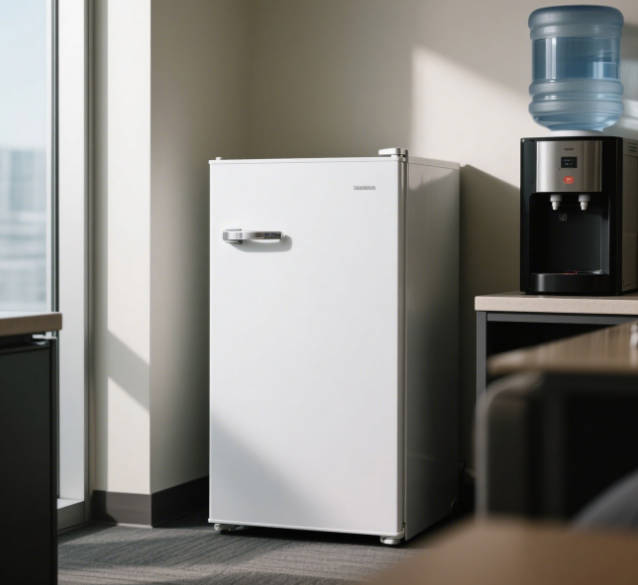When it comes to purchasing a mini desktop refrigerator, one of the critical factors to consider is its energy efficiency. This not only impacts your electricity bills but also contributes to environmental sustainability. However, with a variety of models on the market, it can be challenging to determine which one is the most energy-efficient. In this article, we'll guide you through the process of identifying the energy efficiency of a mini desktop refrigerator, so you can make an informed decision.

Understanding Energy Efficiency Labels
Most mini desktop refrigerators come with an energy efficiency label that provides valuable information about the appliance's power consumption and environmental impact. Look for the Energy Star label, which is a globally recognized certification for energy efficiency. Appliances with this label meet strict energy efficiency guidelines set by the Environmental Protection Agency (EPA) and the Department of Energy (DOE), ensuring that they use less energy without sacrificing performance.
Checking the Energy Guide Label
Another important aspect to consider is the Energy Guide label, which is required by law for all new appliances sold in the United States. This label compares the energy consumption of the mini desktop refrigerator you're considering to other models on the market. It also provides an estimate of the annual operating cost, allowing you to calculate potential savings over time.
Analyzing the Energy Factor (EF)
The Energy Factor (EF) is a measure of the refrigerator's efficiency, calculated by dividing the volume of space it cools by the amount of electricity it uses. A higher EF indicates a more energy-efficient refrigerator. When comparing models, aim for a higher EF, as this will translate to lower energy bills and a smaller carbon footprint.
Considering the Compressor Type
The type of compressor used in a mini desktop refrigerator can also affect its energy efficiency. Look for models with an inverter compressor, which adjusts its speed based on the cooling demand. This technology can significantly reduce energy consumption compared to traditional compressors, which run at a constant speed.
Evaluating the Insulation Quality
Good insulation is crucial for energy efficiency, as it helps to maintain a consistent temperature inside the refrigerator. Check for details on the type of insulation used and its thickness. The better the insulation, the less energy is required to maintain the desired temperature, resulting in lower energy consumption.
Assessing the Number of Compartments
Mini desktop refrigerators with multiple compartments can be more energy-efficient, as they allow for better organization and separation of food items. This can help to reduce the amount of time the refrigerator door is open, which in turn reduces the amount of cold air that escapes and needs to be replaced, saving energy.
Looking for Additional Features
Some mini desktop refrigerators come with energy-saving features such as auto defrost, which prevents the buildup of frost and reduces the need for manual defrosting. Additionally, consider models with a vacation mode that allows you to set the refrigerator to a higher temperature when not in use, further reducing energy consumption.
By considering the Energy Star label, Energy Guide label, Energy Factor, compressor type, insulation quality, compartment design, and additional energy-saving features, you can effectively evaluate the energy efficiency of a mini desktop refrigerator. Investing in an energy-efficient appliance not only saves you money on your electricity bills but also contributes to a healthier environment. Make an informed choice and enjoy the benefits of a mini desktop refrigerator that's both cost-effective and eco-friendly.